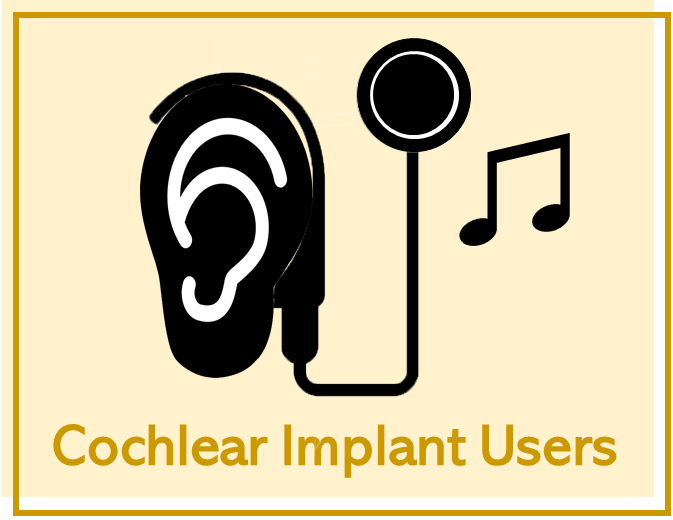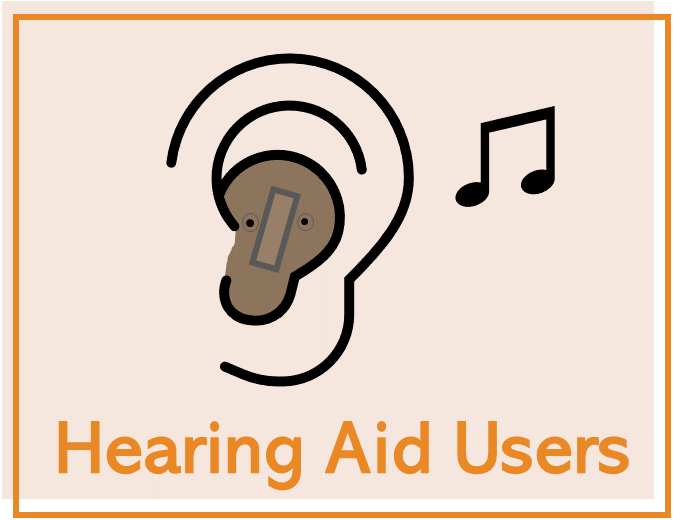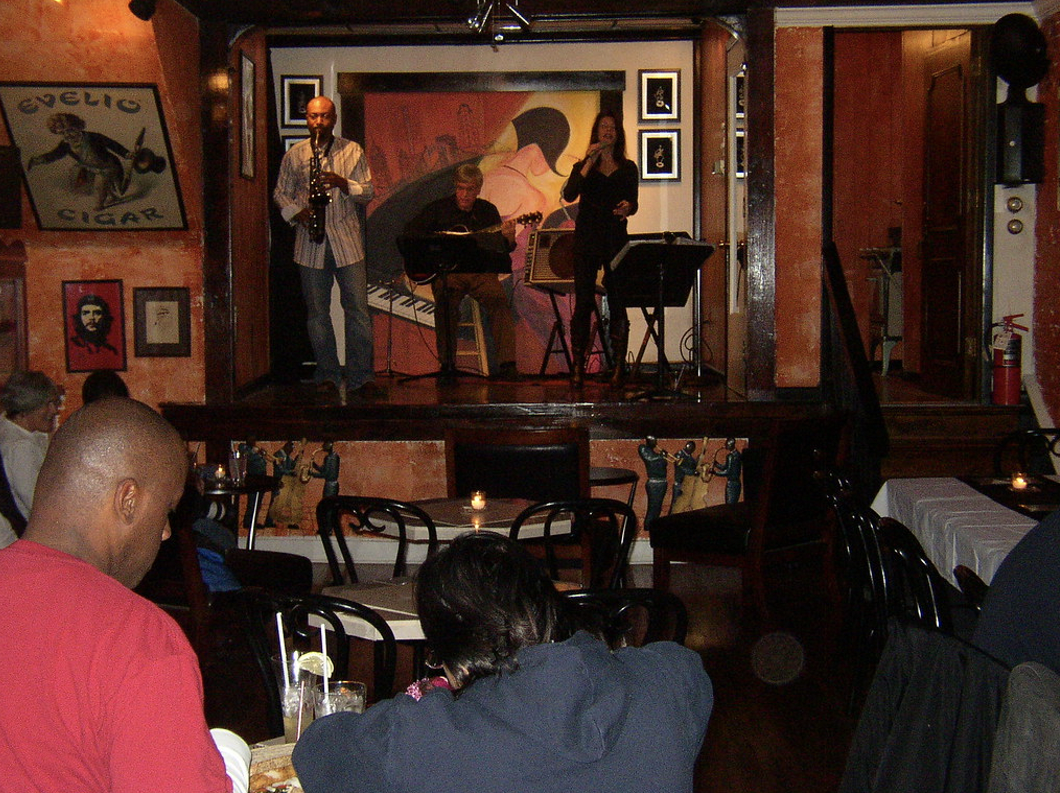See also: Articles on Music, Hearing Loss, and Hearing Devices
As you read this website, keep in mind the following:
-
People with hearing loss can differ in many ways.
-
Some information may be more similar to your situation.
-
Pick and choose the information most useful for you.
Background Music as a Barrier to Communication
Music is often played in the background at social events, restaurants, religious services, and other everyday experiences to set the desired mood. People who use hearing devices report that background music makes talking to others more difficult and tiring.
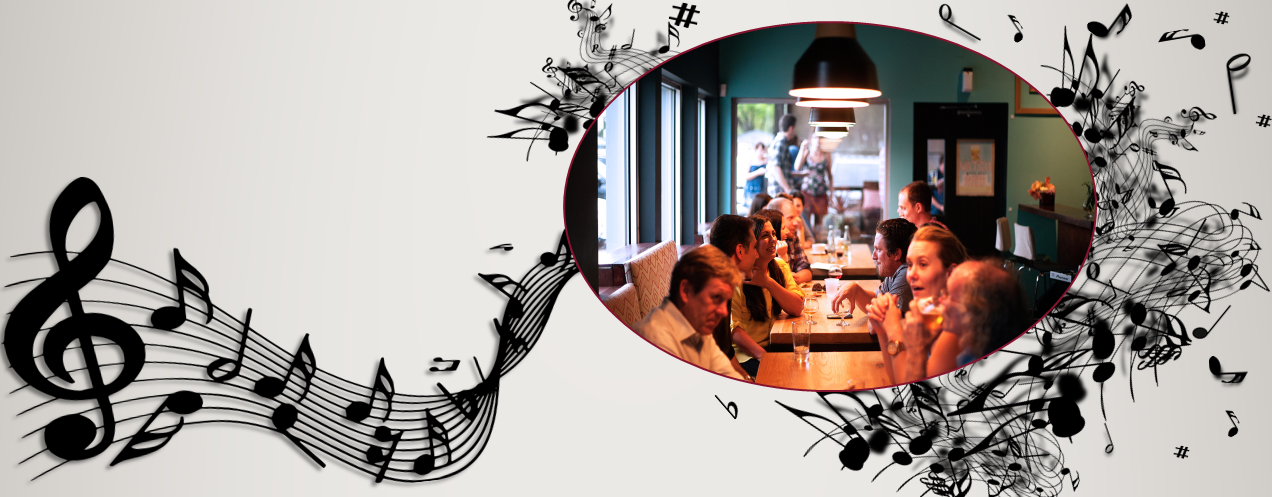
1, 2
It is very difficult to understand and carry on a conversation when music is playing at a restaurant or social environment.
When I go to a location that has music during a function (example wedding), music sounds like background noise to me. I cannot enjoy both music and conversation together.
There are approaches that might help to control the volume or reduce the impact of background music.
These break down into 3 categories:
Circumstances change over time, so you may need to adjust your approaches.
Planning Ahead
Consider these options to reduce potential background noise; some may work more effectively for you, or for particular situations:
Going to a restaurant?
-
Make reservations for days and times the restaurant is less busy.
-
Some restaurants post on websites their busiest times.
-
When calling for a reservation, ask what times are usually less busy.
-
-
Ask if the restaurant has a private room; try and reserve that.
-
Choose restaurants that are less noisy. What makes restaurants more noisy?
-
Kitchen in the main eating area
-
TVs with sports or entertainment
-
Loud background music
-
Large rooms with many tables
-
High ceilings and lots of hard surfaces
-
Don’t just check the menu. Check out the acoustics, too!
-
Search the web. See if your local hearing loss support groups have online information about quieter restaurants.
-
Search for helpful phone applications.
-
SoundPrint measures sound levels and recommends quiet places near you (e.g. restaurants, coffee shops).
-
-
Consider avoiding some loud situations altogether.
-
Order take out: Enjoy restaurant food with your friends in the quiet of your home or at a pleasant, quiet outdoor setting.
-
-
Bring assistive listening devices (for example, your mini-mic or Roger pen) with you to restaurants and social situations.
-
Click here for more information on assistive listening devices.
-
-
Avoid attending restaurants when they have live music in the dining area.
-
Select restaurants that don't have loud TVs or ambient music.
Hosting a party?
-
Choose not to play background music when you host parties. Other people may find it easier to hear each other, too!
-
Keep the lighting bright enough to help you read lips.
-
Consider inviting a smaller number of people at a time to reduce the amount of background noise.
I’ve been known to ask the hosts to turn [loud music] down/off, and it usually ends up that other people thought it was too loud as well but didn’t want to say anything.
Problem Solving Strategies
If you can't choose the setting, problem solving can help you to cope.
-
Try and focus your attention on a specific conversation.
-
Notice your location and head position. For example, try slightly turning your head to point an ear toward a conversation partner or seeking out a quieter area of a bar or party.
-
Sit with your back to a corner to help reduce the amount of sound coming from as many directions.
-
At a large reception, ask your conversation partners to move the conversation to a quieter area nearby for a while.
With sound in general, I tend to want to place my backside into corners so I can face everything directly head on, if not side on.
I usually ask if we can go to a more quiet place, or I try my best to read lips.
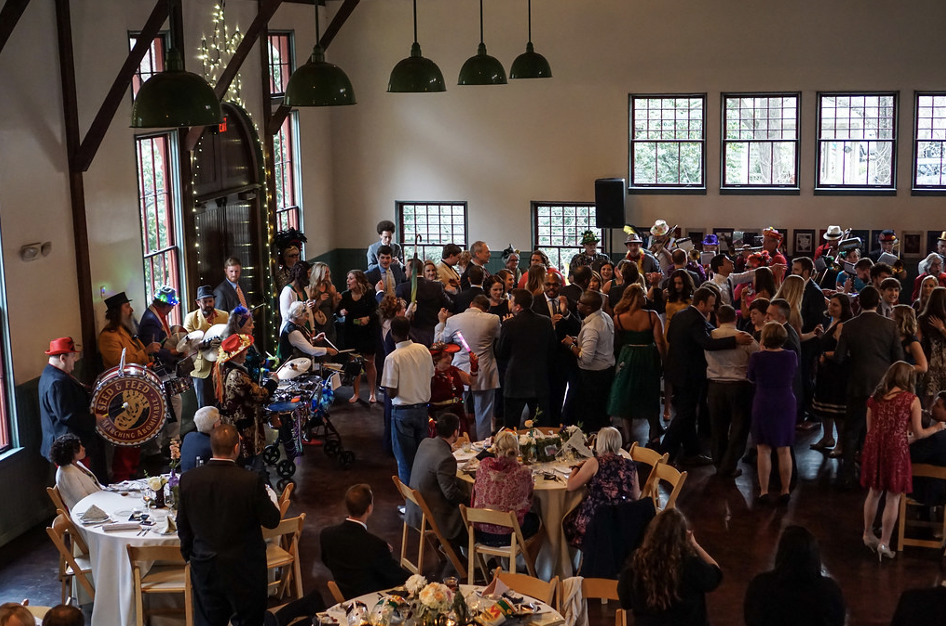
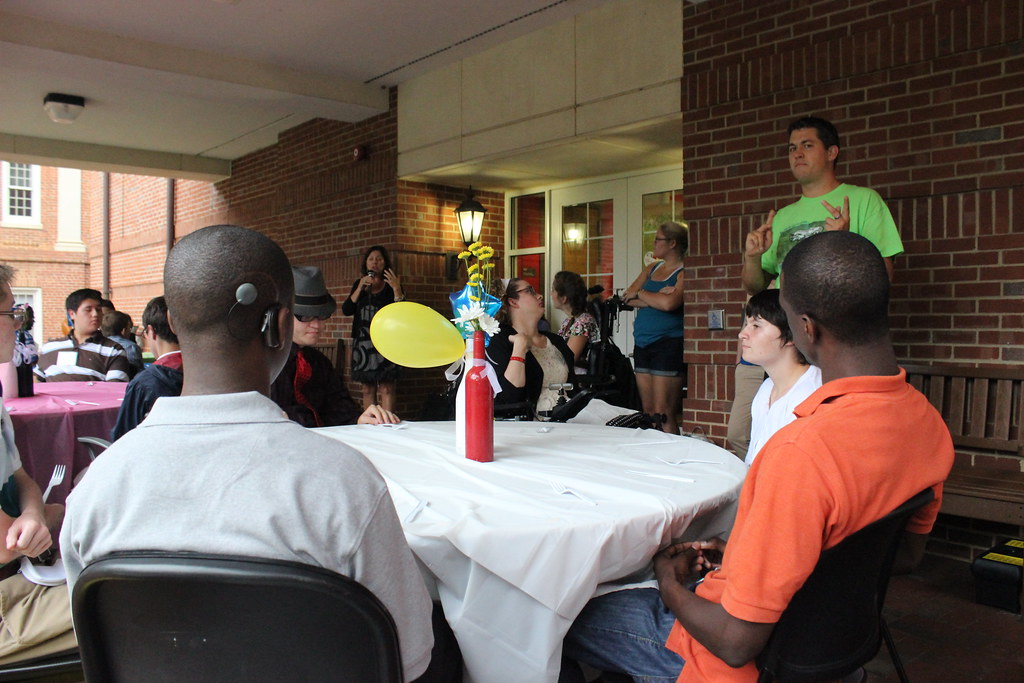
Self-Advocacy
Self-advocacy involves looking out for your own needs and speaking up for yourself.
-
Self-advocacy is extremely important in complex listening situations, especially when background music overwhelms conversation.
-
Some people may feel awkward requesting accommodations. However, self-advocacy can be done politely and can improve listening experiences.
-
Click on these links for additional information:
If I’m going to be in a restaurant, I will often ask for a corner or a quiet table. Sometimes I will ask to have the music lowered.
Self-advocacy in settings with background music:
-
Before going out, educate your conversation partners about hearing loss.
-
Help them understand your situation with weblinks about hearing loss and simulations of hearing loss.
-
Share communication tips with your loved ones.
-
Talk with family or friends about why selecting more quiet locations for social events helps you.
-
-
Find an organization near you to learn more about advocating for people with hearing loss: https://www.asha.org/public/hearing/Hearing-Loss-Organizations-and-Associations/
-
Introduce yourself to the restaurant host or manager, hopefully when they are less busy. Ask for a more quiet spot in the restaurant. Politely explain why you need an accommodation.
-
Ask to be seated away from the kitchen or in less crowded places in the restaurant.
-
Ask the host or manager at a restaurant if the MUZAK can be turned down near your table. Explain why, and thank them for their assistance.
-
-
Ask others to speak louder, slower, or to rephrase sentences you did not quite catch.
-
Choose where to sit among your conversation partners to increase visual cues or use of residual hearing.
-
In noisy social settings, ask your conversation partners if you might move to a more quiet adjoining area.
-
Take a ‘sound break’ when you get too tired. Leave the noisy environment for a few minutes.
I’ve trained my friends to sit on my good ear side so I can hear them talk and also hear music./Single sided deaf user
Where there is background music, I ask the people I am with what song is playing and then pull from auditory memory.
Click here to view Decision Trees, which illustrate step-by-step problem solving for planning for going to a noisy restaurant.
References
Cleveland Clinic (n.d.). Communicating with people with hearing loss. Retrieved June 24, 2020, from https://my.clevelandclinic.org/health/articles/4050-hearing-loss-tips-to-improve-communication-with-people-with--hearing-loss
Gfeller, K., Driscoll, V., & Schwalje, A. (2019). Adult cochlear implant recipients’ perspectives on experiences with music in everyday life: A multifaceted and dynamic phenomenon. Frontiers in Neuroscience, 13, 1229. https://doi.org/10.3389/fnins.2019.01229
UCSF Health (n.d.). Communicating with people with hearing loss. Retrieved June 24, 2020, from https://www.ucsfhealth.org/education/communicating-with-people-with-hearing-loss
Click here to review references used in preparation of this website.
1. All images on this website are used under Creative Commons or other licenses or have been created by the website developers.
2. Click here to access the sources of images on this page.
